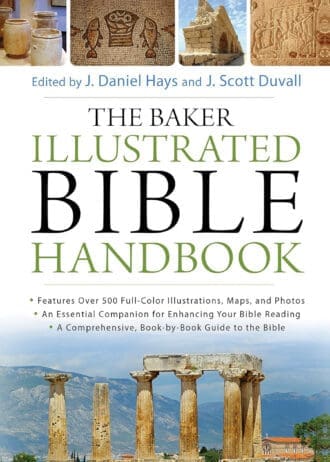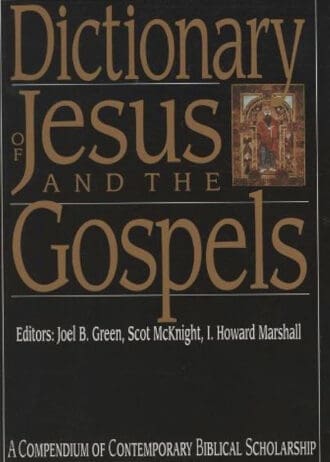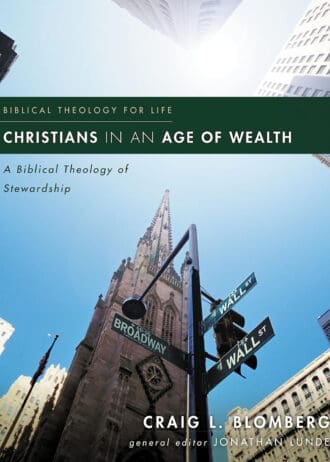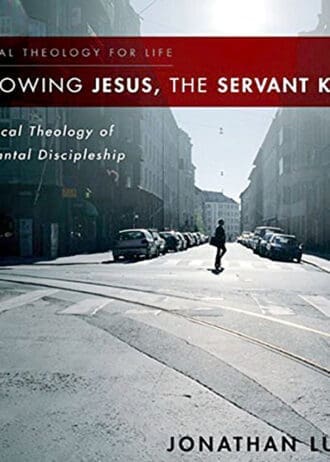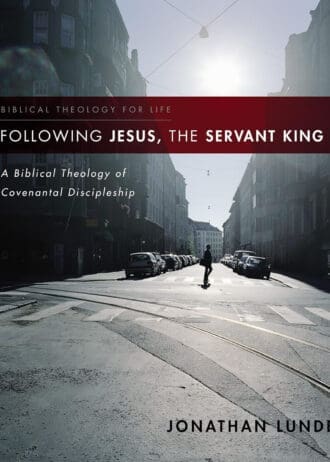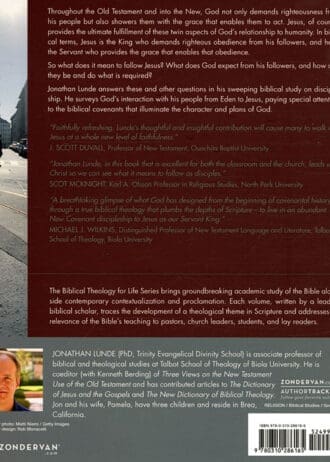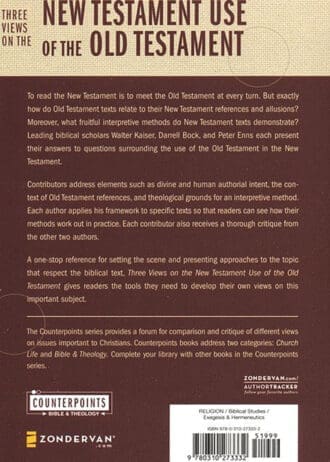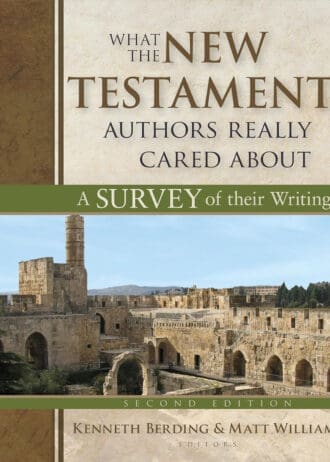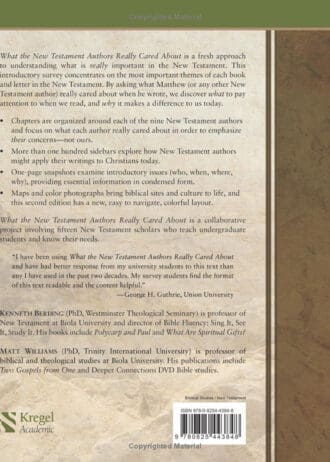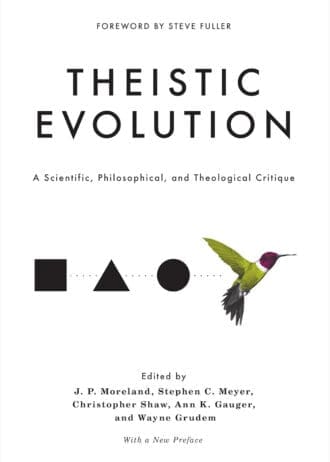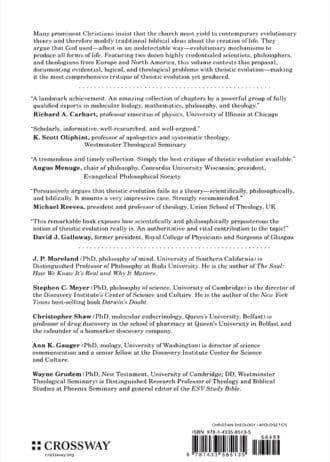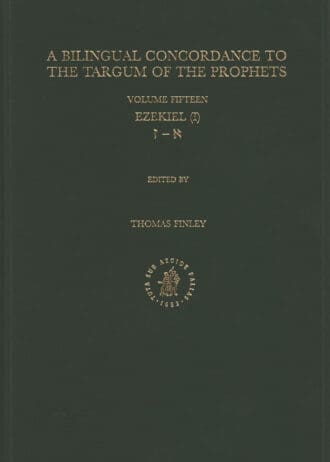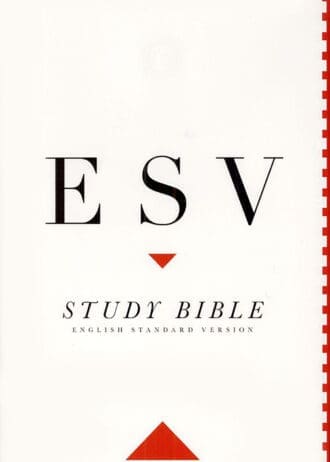The New Dictionary of Biblical Theology will quickly establish itself as an essential building block of every library of basic biblical reference books. Building on its companion volumes, the New Bible Dictionary and New Bible Commentary, this work takes readers to a higher vantage point where they can view the thematic terrain of the Bible in its canonical wholeness. In addition, it fills the interpretive space between those volumes and the New Dictionary of Theology.
At the heart of this work is an A-to-Z encyclopedia of over 200 key biblical-theological themes such as atonement, creation, eschatology, Israel, Jesus Christ, the kingdom of God, redemption, suffering, wisdom and worship. Students and communicators of the Bible will be well served by articles exploring the theology of each biblical book. And for those interested in the wider discipline of biblical theology, major articles explore foundational issues such as the history of biblical theology, the challenges raised against biblical theology, and the unity and diversity of Scripture.
Over 120 contributors drawn from the front ranks of biblical scholarship in the English-speaking world make the New Dictionary of Biblical Theology a work of distinction and a benchmark of evangelical biblical theology at the turn of the twenty-first century. Bibliographies round out all articles, directing readers to research trails leading out of the Dictionary and into crucial studies on every subject. Cross-references throughout send readers through the varied maze of reading pathways, maximizing the usefulness of this volume.
Editorial Reviews
The advent of the New Dictionary of Biblical Theology is both timely and highly significant. It is timely because of the increasing recognition in both scholarly and popular Christian circles of the need to integrate biblical themes, ideas and passages into the message of the Bible as a whole (whatever diversity there may be within it). The volume is important because of the quality and scope of its articles, which are helpfully divided into three sections: those dealing with fundamental issues relating to biblical theology, articles about various books and corpora of the Scriptures, and those on key biblical topics. This dictionary will be an invaluable aid to all students and teachers of the Bible who want to understand the relation of the parts to the whole thrust of the Scriptures.
Peter O’Brien, Moore Theological College, Sydney, Australia
At least once in each generation, change of such magnitude takes place in a field of study that standard reference books have to be revised and new ones written. What Kevin Vanhoozer has called in this volume the ‘second coming’ of biblical theology in the twentieth century is just such a change. It has stimulated fresh interest in the theological unity of the Bible and renewed study of themes across the whole sweep of biblical revelation. The New Dictionary of Biblical Theology is keenly attuned to this welcome development and draws on the best of contemporary evangelical scholarship. It is a quality volume, which I’m sure will become a standard reference work for all serious Bible students, especially those committed to teaching and preaching the whole Bible as Christian Scripture.
Barry G. Webb, Moore Theological College, Sydney, Australia
The idea that the writings of the Old and New Testaments form a coherent whole is at odds with current scholarly fashion. The Christian ‘Old Testament’ has become a supposedly more neutral ‘Hebrew Bible,’ only loosely related to the New Testament; and the emphasis on the distinctiveness of the individual biblical texts has led to a systematic neglect of their deep interrelatedness. This fragmentation of the Bible undermines its single though diverse testimony to the action of the triune God in and for the world. Evangelical scholarship has always been concerned with the whole Bible and is uniquely well placed to resist this trend toward fragmentation. The New Dictionary of Biblical Theology is a timely challenge to contemporary scholarship to reconsider its prejudice against coherence. It is a welcome sign that biblical theology continues to flourish and that reports of its demise have been greatly exaggerated.
Francis Watson, Durham University, England
The New Dictionary of Biblical Theology is a valuable resource for teachers, preachers and students. There are excellent surveys of key issues such as ‘The Unity and Diversity of Scripture’ and ‘Relationship of Old Testament and New Testament,’ plus more detailed articles on biblical books, themes, characters, etc. Most of those I have read reflect thorough research and breadth of knowledge. Helpful bibliographies are provided after each article. . . . The emphasis on the theological significance of the topics covered is a distinctive contribution of this work.
David L. Baker, Ashland Theological Seminary, Ashland, Ohio


